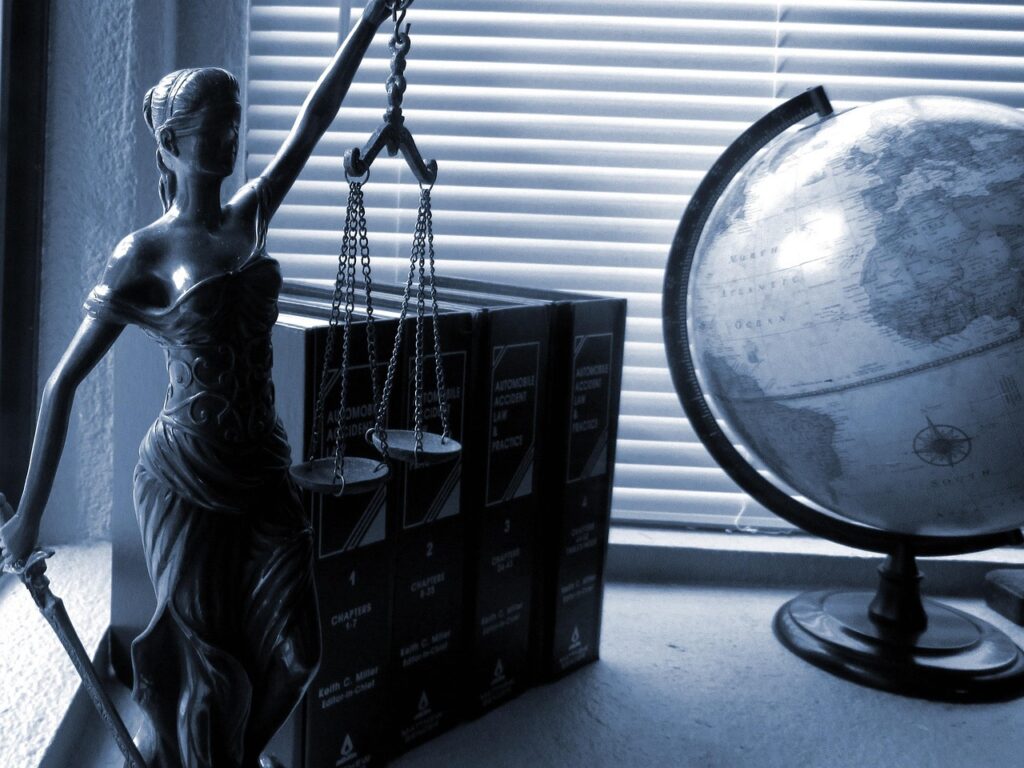Published On: October 5th 2025
Authored By: Nitya Ramachandran
Government Law College, Coimbatore (Affiliated to TNDALU)
INTRODUCTION
Genocide refers to the mass killing of people, which mostly occurs during war. It is considered as the “crime of crimes” because of its barbarity, large-scale and long-lasting societal destruction. The term is legally defined and codified under international law. The definition not only states about mass extermination, but notably includes rehabilitation of another generation by preventing birth in that particular race.
International laws regarding genocide had evolved over years, but despite the legal prohibition and moral consensus against genocide, persistence of such acts has into the twenty-first century, have exposed limitations of international justice mechanisms. Lack of effective sanctions and strategies are the main cause for its re-emergence.
DEFINITION OF “GENOCIDE” IN INTERNATIONAL LAW
The term “Genocide” was first coined by Raphäel Lemkin, in his book, Axis Rule in Occupied Europe, 1944. He defined by coining two terms Genos and Cide which means race or tribe and killing, respectively. It was developed in response to the Nazi policies of murdering Jews during the Holocaust.[1]
Article II of the Convention on the Prevention and Punishment of the Crime of Genocide defines “Genocide” as—
Any of the following acts committed with intent to destroy, in whole or in part, a national, ethnical, racial or religious group, as such:
- Killing members of the group;
- Causing serious bodily or mental harm to members of the group;
- Deliberately inflicting on the group conditions of life calculated to bring about its physical destruction in whole or in part;
- Imposing measures intended to prevent births within the group;
- Forcibly transferring children of the group to another group.[2]
To constitute genocide, there must be a proven intent on the part of perpetrators to physically destroy a national, ethnical, racial or religious group. It is the mental element of dolus specialis, (special intent) to erase a group or race that specifically constitutes genocide. Also, it is important that the victim groups or race are targeted intentionally as a group, not as its members or individuals.[3]
HISTORICAL CONTEXT
The Convention on the Prevention and Punishment of the Crime of Genocide was the first human rights treaty adopted with the object to codify and prevent genocide as crime in international aspect. Its need for codification can be traced back from the pre-20th century.
Early Instances of Mass Atrocities
Ancient conquests by empires such as Assyria, Rome, and Mongol invasions often involved annihilation of entire cities or existing race. Events like the extermination of the Herero and Nama in German South-West Africa and the Armenian massacres under the Ottoman Empire’s rule, commonly known as the Armenian Genocide (1915 – 1916) was called the first genocide of the 20th century. The Ottoman government deported Armenian population from its north-eastern borders, killing at least 1.2 million, in massacres, individual killings, exposure, and starvation.[4]
Genocide during World War II – The Holocaust
During 1941, the Nazi Germany invaded the Soviet Union, carrying out mass killing of Jewish people. Nazi leadership enforced policies that aimed at restructuring the ethnic composition of Europe by mass murder of all European Jews, which is referred to as the Holocaust.[5]
The Cold War Era
Despite the 1948 United Nations Convention, political divisions during the Cold War limited its enforcement. Even the countries that joined the Convention disregarded to address this due to issues concerning geopolitical alignments.
Post-Cold War
The Rwandan and Bosnian genocide marked the timeline during this period. For about 100 days, the Hutu militias underwent extermination of the Tutsi population. In the republic of Bosnia-Herzegovina, conflict between the three main ethnic groups – the Serbs, Croats, and Muslims – resulted in genocide committed by the Serbs against Bosnian Muslims.[6]
Iraq and Syria
The ISIS militants launched genocide against the Yazidi community in Sinjar in 2014. Yazidi men who refused to convert to Islam were executed. An estimated 7,000 Yazidi women and girls were enslaved and forcibly transferred to locations in Iraq and eastern Syria. Held in sexual slavery, survivors reported being repeatedly sold, gifted, or passed around among ISIS fighters.[7]
Codification of Genocide as a Crime under International Law
Genocide was first recognised as a crime under international law by the UN General Assembly, 1946. It was codified as an independent crime in the 1948 Genocide Convention. It has been ratified by 153 States. The International Court of Justice (ICJ) emphasised that all countries, whether ratified the convention or not, are bound by the principle that genocide is a crime under international law, as part of general customary law and its prohibition is a peremptory norm of international law (jus cogens), no derogation from it is allowed.[8]
INTERNATIONAL JUSTICE MECHANISMS
International Court of Justice (ICJ)
The ICJ is the principal judicial organ of the UN. Established through the adoption of the UN Charter it adjudicates disputes between states, including allegations of state responsibility for genocide.
The Court has two functions:
- To settle, in accordance with international law, legal disputessubmitted by States, and
- To give advisory opinionson legal questions referred to it by authorized UN organs and specialized agencies.[9]
International Criminal Court (ICC)
The ICC is an independent judicial body that exercises jurisdiction over persons charged with genocide, crimes against humanity, war crimes and the crime of aggression. Unlike the ad hoc tribunals, the ICC operates continuously, but it relies heavily on state cooperation for arrests and enforcement.[10]
Ad Hoc Tribunals
The Ad Hoc Tribunals were established to render timely justice to victims of international crimes. The International Criminal Tribunal for the former Yugoslavia (ICTY) was the first international war crimes tribunal, for prosecution of crimes within the territory of former Yugoslavia since 1991. Also, The International Criminal Tribunal for Rwanda (ICTR) was established in 1994 for prosecution of persons responsible for genocide and other serious violations of international humanitarian law committed in the territory of Rwanda and Rwandan citizens responsible for genocide and other such violations committed in the territory of neighbouring states.[11]
CHALLENGES IN PROSECUTING GENOCIDE
Proving Specific Intent
The ‘specific intent’ to destroy a group or race (dolus specialis), apart from general intent, is required to be proved for prosecution. This makes it a big hurdle as gathering sufficient evidence is difficult, especially in conflict zones where access to evidence is constrained.[12]
Political Will
International prosecutions often depend on the political interests of powerful states. There are few non-cooperative states that wish to uphold their sovereignty by non-interference in domestic affairs.
Enforcement and Arrests
International courts lack independent enforcement mechanisms. For example, high-profile suspects, such as Sudan’s Omar al-Bashir, have evaded arrest for years despite ICC warrants. The case remained in pre-trial stage as ICC does not try individuals unless they are present in the courtroom. The suspect was at large.[13]
CONTEMPORARY RELEVANVCE
Rohingya Crisis
The ‘Rohingya’ are a Muslim ethnic minority who resided in Myanmar for centuries. They lack official recognition as they were denied citizenship since 1982, leading to them becoming the world’s largest stateless population. There were increased inhuman actions against the group, exploitation, sexual and gender-based violence, etc. There are various plans implemented by the UN to help provide basic needs assistance to the refugees currently living in the Cox’s Bazar in Bangladesh.[14]
Uyghur Allegations
The ‘Uyghur’ are also a Muslim ethnic minority living in Xinjiang, China. As reported by the Office of the UN High Commissioner for Human Rights[15], China has involved in “serious human rights violations” such as deprivation of fundamental rights and ill-treatment. China has denied all these allegations stating that its counter-terrorism and “de-radicalization efforts” in the region, had been conducted according to “the rule of law” and by no means add up to “suppression of ethnic minorities.”[16] The issue under international legal processes remains politically fraught.
The Gaza Genocide
The conflict in Israel arose due to assault initiated from Gaza. It has been concluded that Israel is committing genocide in Gaza, calling for the ICC to expand its mandate to include genocide, and for greater accountability measures.[17] Current status of the case filed before the ICJ remains undecided as Israel denies accusations, emphasising self-defence.
Ukraine Conflict
Ukraine filed an application instituting proceedings against the Russian Federation contending, inter alia, that “the Russian Federation has falsely claimed that acts of genocide have occurred in the Luhansk and Donetsk oblasts of Ukraine, and on that basis recognized the so-called ‘Donetsk People’s Republic’ and ‘Luhansk People’s Republic’, and then declared and implemented a ‘special military operation’ against Ukraine”. Ukraine has also denied that acts of genocide against Russian states and hence, imposes that Russia has no lawful reason to take action against Ukraine to prevent genocide.[18] Russia has ignored orders from the ICJ to cease military operations against Ukraine, denoting its lack of jurisdiction.
PREVENTION AND ACCOUNTABILITY
Adopted at the 2005 UN World Summit, Responsibility to Protect affirms that states must protect populations from genocide, war crimes, ethnic cleansing, and crimes against humanity. The international community has a subsidiary responsibility to intervene when states fail.[19]
Early warning mechanisms initiated by the UN agencies such as the Early Warning Project[20] are also playing vital role in prevention by spotlighting countries with high risk of mass violence against humanity.
CONCLUSION
Genocide is considered as a grave crime against humanity. It has evolved in course of time, from ancient history to the current date issues of war and aggression. There are various redressal mechanisms provided under international law concerning its fatal rate. The deliberate destruction of an entire human group constitutes one of the gravest violations of international law, principles of natural justice. Deep down, genocide can only be prevented by contributing and promoting national and international peace and awareness for human race degradation.
REFERENCES
[1] ‘Definitions of Genocide and Related Crimes’ (United Nations) <https://www.un.org/en/genocide-prevention/definition#:~:text=Background,of%20general%20customary%20international%20law> accessed 10 August 2025.
[2] Convention on the Prevention and Punishment of the Crime of Genocide (adopted 9 December 1948, entered into force 12 January 1951) 78 UNTS 277 (Genocide Convention) art 2.
[3] ‘Definitions of Genocide and Related Crimes’ (United Nations) <https://www.un.org/en/genocide-prevention/definition#:~:text=Background,of%20general%20customary%20international%20law> accessed 10 August 2025.
[4] United States Holocaust Memorial Museum, ‘THE ARMENIAN GENOCIDE (1915-16): OVERVIEW’ (United States holocaust memorial museum) <https://encyclopedia.ushmm.org/content/en/article/the-armenian-genocide-1915-16-overview> accessed 11 August 2025.
[5] United States holocaust memorial museum, ‘GENOCIDE TIMELINE’ (United States holocaust memorial museum) <https://encyclopedia.ushmm.org/content/en/article/genocide-timeline> accessed 11 August 2025.
[6] The Genocide Education Project, ‘Cases of Genocide ’ (The Genocide Education Project) <https://genocideeducation.org/resources/modern-era-genocides/> accessed 11 August 2025.
[7] ‘Do Not Forget Yazidi Survivors’ (JRS International , 2 August 2024) <https://jrs.net/en/campaign/donotforgetus-yazidis/> accessed 11 August 2025.
[8] ‘Definitions of Genocide and Related Crimes’ (United Nations) <https://www.un.org/en/genocide-prevention/definition#:~:text=Background,of%20general%20customary%20international%20law> accessed 10 August 2025.
[9] United Nations, ‘UN Documentation: International Court of Justice’ (United Nations) <https://research.un.org/en/docs/icj> accessed 13 August 2025.
[10] ‘UN International Law Documentation’ (United Nations, Dag Hammarskjöld Library) <https://research.un.org/en/docs/law/courts> accessed 13 August 2025.
[11] ibid.
[12] Bassiouni MC, International Criminal Law. Volume I, Sources, Subjects, and Contents, vol 1 (2008th edn, Martinus Nijhoff Publishers 2008).
[13] International Criminal Court, ‘Al Bashir | International Criminal Court’ (Al Bashir Case) <https://www.icc-cpi.int/darfur/albashir> accessed 12 August 2025.
[14] United Nations, ‘Far from the Headlines: Myanmar – The Rohingya Crisis’ (United Nations, Regional Information Centre of Western Europe , 3 May 2024) <https://unric.org/en/myanmar-the-rohingya-crisis/> accessed 13 August 2025.
[15] ‘OHCHR Assessment of Human Rights Concerns in the Xinjiang Uyghur Autonomous Region, People’s Republic of China | Ohchr’ (United Nations Human Rights Office of the High Commissioner , 31 August 2022) <https://www.ohchr.org/en/documents/country-reports/ohchr-assessment-human-rights-concerns-xinjiang-uyghur-autonomous-region> accessed 13 August 2025.
[16] United Nations, ‘China Responsible for “serious Human Rights Violations” in Xinjiang Province: Un Human Rights Report | UN News’ (UN News Global perspective Human stories, 31 August 2022) <https://news.un.org/en/story/2022/08/1125932> accessed 13 August 2025.
[17] Amnesty International, ‘Amnesty International Concludes Israel Is Committing Genocide against Palestinians in Gaza’ (Amnesty International, 5 December 2024) <https://www.amnesty.org/en/latest/news/2024/12/amnesty-international-concludes-israel-is-committing-genocide-against-palestinians-in-gaza/?utm_source=chatgpt.com> accessed 13 August 2025.
[18] International Court of Justice, ‘Allegations of Genocide under the Convention on the Prevention and Punishment of the Crime of Genocide (Ukraine v. Russian Federation)’ (Allegations of Genocide under the Convention on the Prevention and Punishment of the Crime of Genocide (Ukrain, 31 January 2025) <https://icj-cij.org/case/182> accessed 13 August 2025.
[19] ‘World Summit 2005’ (United Nations, Conferences | Environment and sustainable development) <https://www.un.org/en/conferences/environment/newyork2005> accessed 13 August 2025.
[20] (Early warning project) <http://earlywarningproject.ushmm.org/> accessed 13 August 2025.




